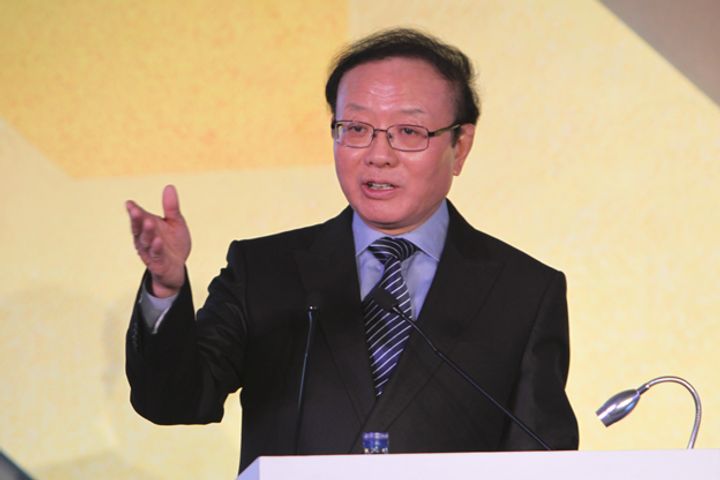 China to Back WTO Reform If Developing Nation Provision Is Kept, Ex-Vice Minister Says
China to Back WTO Reform If Developing Nation Provision Is Kept, Ex-Vice Minister Says(Yicai Global) Nov. 21 -- If the World Trade Organization's provision on special and differential treatment for developing nations is retained, China's government would unreservedly support the reforms proposed for the international trade body, according to a former senior Chinese official.
In an article published in the state-backed Global Times yesterday, former Vice Minister of Commerce Wei Jianguo also said that China would not back the reforms if the provision were abandoned. As the world's second-largest economy, the country has taken a clear and firm stand on this point, he added.
Wei added that all parties have reached an agreement on the basic understanding of the reforms, but they are divided on the direction and method.
As a basic principle that must be followed by the WTO while dealing with matters related to developing countries, the special and differential treatment provision, or SDT, has been in existence since the time of the organization's predecessor, the General Agreement on Tariffs and Trade.
It refers to the fact that developing countries may deviate from the general rights and obligations under agreements to a certain extent and under certain conditions, with special exceptions in terms of tariffs, intellectual property protection and other aspects.
Chinese President Xi Jinping specifically mentioned the provision in his keynote speech to the Asia-Pacific Economic Cooperation summit on Nov. 17. "The principle of 'special and differential treatment,' which is a cornerstone of the WTO, is not to be challenged," he said. "Otherwise the very foundation of the multilateral trading system will be shaken."
Stalled Globalization
Trade protectionism and unilateralism, led by the United States, have impeded the process of globalization, Wei said in an interview with the state-backed Reference News the same day as Xi's speech. China's support for globalization, through hosting the China International Import Expo, or CIIE, will not only enhance the confidence of the world but also enable more people to understand its ideas, and help the country gain more support in the next steps of WTO and global governance reforms.
Regarding the CIIE, Wei said that no country has ever held a one-way global import expo, calling it a pioneering move by China. There is a threshold for holding import fairs. A country needs to have both a large consumer market and a sufficient capacity for international payments and logistics, he added.
A large consumer market means not only large in size but also stable, which requires support from at least 20 to 30 years of growing import demand. China now boasts that. It has 450 million middle-class citizens, a number that will continue to grow. China has also vowed to meet the growing demand of its people for a better life, so it needs more and higher quality consumer goods. All this indicates that China's consumer market will continue to expand, Wei predicted.
Future Imports
China's payment ability is largely based on foreign exchange reserves. Many people now yearn for imported goods, but not everyone can afford to go abroad, Wei said. According to international practice, a country's foreign exchange reserves are relatively sufficient as long as they are more than three times monthly average imports. China's imports hit USD1.8 trillion last year, equivalent to more than USD100 billion a month, which means reserves of USD300 billion or more would be enough to support the current level of imports. With USD3 trillion of foreign exchange reserves, China could buy more foreign products in the future.
By promoting the Belt and Road Initiative, China is increasing its foreign investment. In this case, China's increasing imports will not only help other countries, especially developing ones, to solve their export problems but also directly boost their economic strength and unleash their development potential once they achieve higher incomes.
Moreover, Wei said China does not care just about itself at times of sluggish global economy, it boost imports and is willing to let more countries board the express train of China's development, reflecting a sense of responsibility.
The CIIE also has a far-reaching impact on China, he said. First is the need for supply-side reforms; with imports of high-quality foreign goods, the expo may force such reforms by reversing the trend. In other words, a high level of opening-up will push China to pursue high-quality economic development, which is a long-term need. Otherwise, it is always difficult to eliminate inefficient and ineffective supply.
The CIIE is also a model for China to open up to the world, to create a higher-level business environment, and provide public goods and services, Wei said.